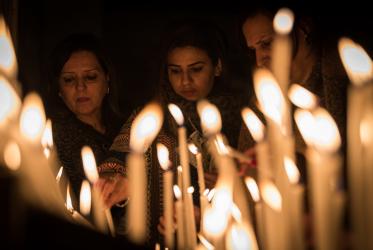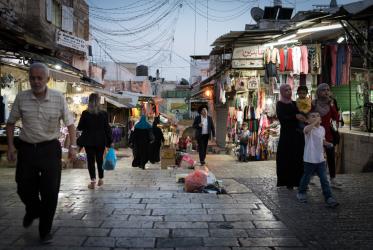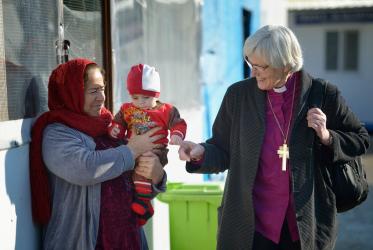Displaying 1 - 20 of 28
09 December 2021
A faith-based, holistic approach to HIV and AIDS-care
13 March 2019
Fr Alexi - a peacemaker in Syria
21 December 2018
How can you help refugees?
11 October 2018
Forum strengthens ecumenical commitment to diakonia
12 October 2017
Conference explores Christian approach to borders
05 October 2017
In Lebanon, refugees face hardship - but find hope
16 March 2017
“When everybody is building walls, the church can build bridges”
30 January 2017
“We can’t go back as long as we know we are not secure”
26 January 2017
Hielke Wolters: Apostle of mission strategies
01 August 2016
Refugees in transit: pushing boundaries all around
08 February 2016
One refugee’s story: from Syria to France
07 January 2016
De Siria a Francia: la historia de un refugiado
07 January 2016










